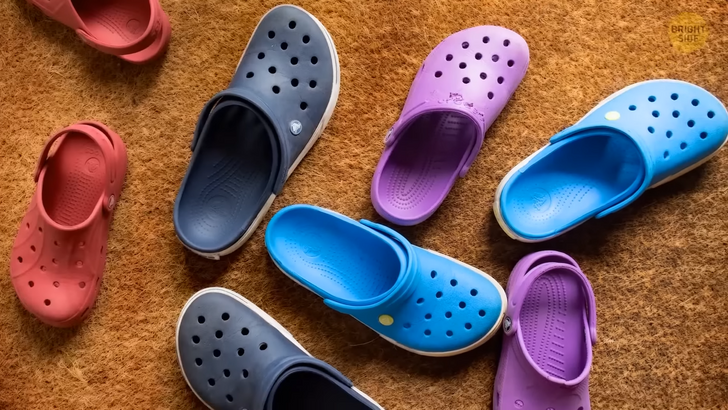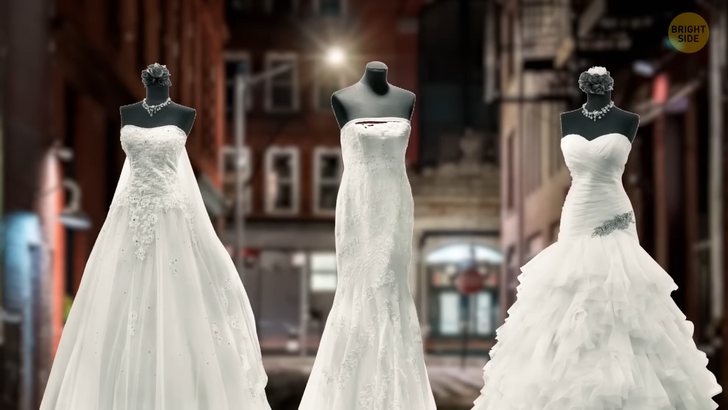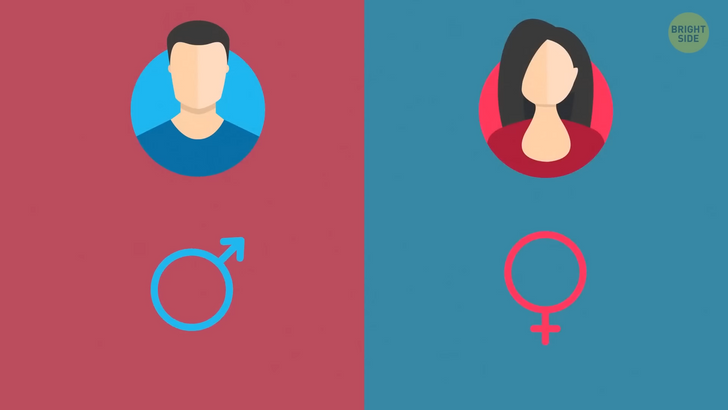Helen Hunt, 60, Stuns During Her Latest Appearance, and Her Lips Become the Center of Attention

If you think of a prisoner, you probably imagine them wearing an orange jumpsuit. This is true, but it wasn’t always like this. Originally, prisoners in the US were wearing uniforms with black-and-white stripes.
In the early 20th century, things started to change. And switching these colors to something else was supposed to cut off the association with gangs. Orange jumpsuits appeared in the 70s.
Inmates don’t always wear them: only when being transported or going outside. Why? For higher visibility. Wearing striking orange, an inmate can’t get away and get lost in the crowd easily.

Okay, more uniforms. For example, astronauts always wear white, and there’s a good reason for it. Space isn’t the safest place, and temperatures are very extreme, going from melting hot to freezing cold. White is the color that reflects heat best, and it’s great for the spacesuit’s cooling and heating systems. And the last point — in the darkness of space, white is the most visible color, so that’s another bonus.
Okay, it makes sense, but then why don’t firefighters wear white to reflect heat? Well, when you’re surrounded by flames, the color of the uniform doesn’t make much difference. And the problem with white is that it gets covered in ash and dust, so it doesn’t look white anymore. With black or brown, there’s no such problem, or at least it’s not so visible. Firefighters also have reflective stripes on their uniforms, which makes them more visible.
The next profession that comes to mind is police officers, and what color do they wear? Yes, dark blue. So, the first police department appeared at the beginning of the 19th century in the UK. The uniform was made blue so that it was easy to distinguish between police officers and soldiers, who had already been wearing white and red by then.
When a police department was established in the US a couple of decades later, they followed the tradition. Interestingly, the uniform hue has never changed. Turns out, it’s a very practical color: you can’t see any stains on it. And it’s also very helpful because, at night, a police officer can track suspects down while staying unnoticed.

Medical workers usually wear uniforms that are a shade of blue or green. There’s a reason for it. Before the 20th century, medical staff was simply wearing their regular clothes, even when performing surgery. With the development of medicine, people started to pay more attention to how sterile everything was. So, they started to wear a uniform.
At first, it was white to signify purity. But the problem was that some stains were very hard to wash off from the white uniform. The color white turned greenish in no time. So, it made sense to make the uniform green and blue.
There’s another reason, too. Surgeons mostly focus on red colors during work. Blue and green are exactly on the opposite side of the spectrum. So, if everything else is greenish blue, red becomes even more distinctive.
Still, it’s a mistake to think that all of them wear the exact same color. In many hospitals, different departments are “color-coded,” you may say. I mean that different departments wear scrubs of different colors so that people and other doctors can easily understand who the person is and differentiate between nurses, surgeons, and physicians right away. It helps address the correct person with a specific request.

The cutest detail about the doctors’ outfits, though, is probably the crocs. Why do they love this kind of footwear? Well, it turns out they’re the easiest to clean and sterilize. The foam they’re made of can be hand-washed or washed in the machine, and there will be no damage to the shoe whatsoever. Also, they’re obviously soft, comfy, and breathable, which makes them the best shoes for people who spend days standing.
Ever wondered why most doctors have sloppy handwriting? No, there’s no special class in medical colleges. The reason why it’s so common is that doctors are always in a rush, and they write as fast as possible. So, there’s no time to care about their writing style.
Also, keep in mind that you’re not the only person they write a prescription for that day. Doctors do a lot of paperwork, often for about 10 hours straight, and they’re just too tired most of the time to deal with calligraphy.

In most countries, wedding dresses are typically white, but this tradition isn’t as old as you might think. Until the 19th century, wedding dresses were any random color — basically, a bride just wore the best gown she owned. Often, they weren’t white. You see, back in the day, with no running water, white wasn’t a very practical color.
Female members of royal families typically got married wearing red gowns. In 1840, Queen Victoria changed the tradition when she got married in a white gown. At first, it was frowned upon because white was associated with mourning, so it wasn’t much of a festive color. Still, less than a decade later, white became widely accepted and started to be associated with purity and innocence instead.
A bit more about weddings. Typically, engagement and wedding rings are worn on the fourth finger, and the tradition goes back to Ancient Egypt, Rome, and Greece. People were wearing their rings on that finger because they believed that there was a vein in this particular finger that led straight to the heart. Wearing a ring on this finger symbolized that the heart of a person was taken.
Originally, the ring was worn on the right hand because people believed the left hand to be unlucky. Some cultures changed it to the left hand later. In some countries, people wear their engagement ring on the right hand before the wedding and switch it to the left after the wedding. But it’s always the fourth finger. Now we know that there’s no vein leading to the heart, but the tradition remained.

Almost everywhere in the world, pink is considered to be a “girl color,” and blue is traditionally a “boy color.” I was wondering why it was like that, so I did a bit of digging. Turns out that, originally, it was vice versa — as a “stronger” color, pink was associated with boys, and blue, as a calmer color, was assigned to girls. Later, the colors were reassigned as pink was seen as a shade of “romantic” red.
In the 19th century, the women’s movement almost put an end to assigning colors to genders. But then there were the 1960s when people learned how to figure out the gender of the future baby and started throwing gender reveal parties. Companies figured that they could make money by selling pink and blue gendered items. And that’s how they established the rule “blue is for boys, and pink is for girls.”
The “blue raspberry” flavor. Or more like the regular raspberry because blue raspberries just don’t exist. But for some reason, raspberry-flavored ice pop is blue. Why is it so if the berry itself is pink or red? Well, for practical reasons and to make it less confusing.
Imagine you are producing a pack of popsicles and assigning colors to flavors. An apple-flavored one will probably be green; a lemon one will be yellow — that’s easy. Then there’s strawberry, so it should be red. Also, cherry — well, red again. Watermelon? Red. And now raspberry — red one more time. Wait, four reds are too many reds; how will people tell them apart? So, raspberry ice pops were made blue and got called a non-existent “blue raspberry.”

Okay, now, the egg mystery. Like why are some of them white and some brown, and what does it depend on? Apparently, the color depends on the breed of the hen: typically, white chickens lay white eggs, and dark chickens lay brown eggs.
But even chickens of the same breed can lay eggs of different colors, depending on the genetics of the particular hen. If you wonder if there’s any difference between brown and white eggs, then the answer is no — it’s just the color of the shell, nothing more.
The yolk can look different, too — yellow or orange. Its color depends on the food the chicken eats. If its diet has a big amount of yellow-orange pigments, then the yolk will be darker. Again, there’s no difference here other than the color, so don’t worry about it.











